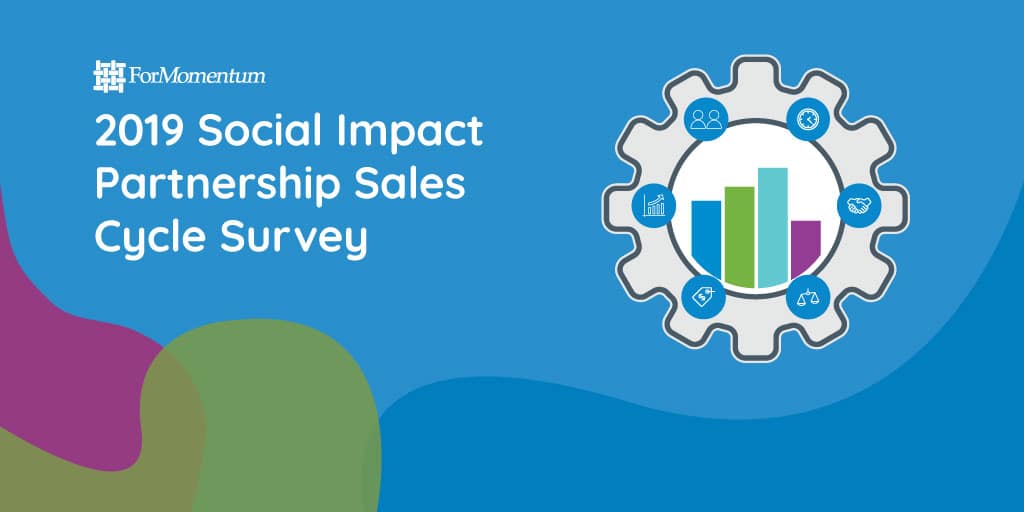
By: Mollye Rhea
Generating revenue through partnership sales is top of mind for nonprofits. For Momentum first conducted partnership decision-making sales cycle research in 2014. We felt it was time to once again survey those who are on the frontlines of cause partnership selling and learn which factors are most important in determining success or failure in 2019.
With the help of our friends at Lab 42, a quantitative research firm, we gathered data in February-March of this year from nonprofit partnership experts representing over 110 top U.S. organizations. We are releasing our 2019 Social Impact Partnership Sales Cycle research. It provides data for all types of partnership opportunities including sponsorship, programmatic funding, integrated partnership and employee-based activities.
Below we share a few highlights of our key takeaways, but you can find the full report here.
Two Key Takeaways from our 2019 Social Impact Partnership Sales Cycle Summary that will set your team up for cause marketing selling success:
Give it Time
True partnerships take time – over 60% of survey respondents said it takes between a year and 18 months to secure a commitment for a one year or multi-year integrated partnership.
When asked about how long it takes related to how much the ask is, the majority of respondents said it takes 7-12 months to secure integrated relationships up to $249k. The larger the ask, the longer the close cycle.
Typically, the more complex the partnership, the longer the close. Survey results indicated that the majority of multi-year partnerships required one year or more of discussions before resulting in an agreement. Similar close patterns are true for sponsorship, programmatic support and employee-directed partnerships.
Want to start a relationship quickly? Focus on strategic assets first to lay the foundation for more opportunities down the road. Don’t underestimate the value of critical in-kind and awareness-building partnerships. Awareness activities close quickly and can amplify your message. 75% of respondents reported in-kind gifts close in less than six months. 66% indicated that awareness activities with no financial commitment close in less than six months. Yet nearly 1 in 4 nonprofits do not take advantage of these types of partnerships!
Relationships Matter
Don’t forget your current partners. They are often the best candidates for new campaign opportunities. Our research shows the number one factor that enhances a nonprofit’s ability to secure a partner is an understanding of the partner’s needs. Current partners, who you know well, are more likely to say yes much faster and more often than new prospects. Don’t overlook this audience!
Take a Balanced Approach
Packaged but flexible offerings may be the best combination for success. Turnkey partnership elements help decrease the time to close but customization based on an understanding of needs is often necessary to achieve mutually-beneficial partnership results. It’s a balancing act of time, money and partnership depth. Custom partnerships are extremely valuable but budget more time to cultivate these opportunities.
Pricing And Partnership Value
One of the most important factors in securing commitments is the perceived value of benefits your organization can bring to the partnership. 75% of survey respondents ranked perceived value of benefits as the single most positive factor that influenced their decision. That’s why it’s important to work with partners to communicate value in a way that speaks to shared objectives. Perceived value is key!
Guaranteed minimums vary with 56% of nonprofits indicating a guaranteed minimum for a corporate partnership. Among those, 55% reported that the minimum guaranteed varies by opportunity.
For Momentum’s 2019 Social Impact Partnership Sales Cycle survey illustrates just how important it is to consider the factors listed above when framing your partnership discussions.

Leave a Reply